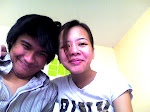 Diosdado Macapagal ( 1961-1965 )
Diosdado Macapagal ( 1961-1965 )Condition of the Philippines:
-Graft and corruption throughout the country.
-Experienced the economic controls that had been in operation since 1948.
-He dismissed corrupt officials and started court action against those who could not explain their sudden acquisition of wealth.
-Macapagal registered a claim of Philippine sovereignty over British North Borneo (Sabah).
Primary Problems:
Corruption problems and unemployment.
Promises in the Election:
-Promised an end to corruption and appealing to the electorate as a common man from humble beginnings.
-promised a socio-economic program anchored on "a return to free and private enterprise", placing economic development in the hands of private entrepreneurs with minimal government interference”.
-Declared: "I shall be president not only of the rich but more so of the poor. We must help bridge the wide gap between the poor man and the man of wealth, not by pulling down the rich to his level as Communism desires, but by raising the poor towards the more abundant life."
-vowed to open Malacañang Palace, the presidential residence, to all the citizens. He canceled the inaugural ball and issued a decree forbidding any member of his family or of his wife's to participate in any business deals with the government.
-Aimed to restore morality to public life by concentrating on the elevation of the living standard of the masses.
Primary Programs:
-Worked to suppress graft and corruption and to stimulate the Philippine economy.
-Introduced the country's first land reform law, which freed many farmers from slavery as tenant farmers.
-Placed the peso on the free currency exchange market, and liberalized foreign exchange and import controls.
-Changed the country's Independence Day from July 4 to June 12, commemorating the day Filipino patriots declared independence from Spain in 1898.
-He also implemented many economic policies to bolster the growth of Philippine agriculture, manufacturing industries and trade.
-Forming of Maphilindo (Malaysia, the Philippines and Indonesia) through a foreign policy. This paved the way for the creation of the Association of Southeast Asian Nations (ASEAN).
-He also proposed decentralization in government by investing greater power in provincial and local governments as a step essential to the growth of democratic institutions. He also suggested the establishment of eight regional legislatures with power to levy taxes.
Results of the Programs:
-Agricultural gross domestic product (GDP) was at its highest, inflation was at its lowest and trade deficit was negligible.
-Foreign debts were less than US$600 million and Philippine economic development was right behind that of Japan in Asia.
-Twenty days after the inauguration, exchange controls were lifted and the Philippine peso was allowed to float on the free currency exchange market.
-The peso devalued from P2.64 to the US dollar, and stabilized at P3.80 to the dollar, supported by a $300 million stabilization fund from the International Monetary Fund.
-Able to achieve steady economic progress, and annual GDP growth averaged at 5.15% for 1962-65.
Inadequacies of Policies:
-Preventing his administration from being wrecked by the Stonehill scandal of 1962, which revealed massive government corruption and racketeering that involved almost the whole bureaucracy and Congress.
-Despite Macapagal's so-called incorruptibility, he failed to solve decisively the major social and economic problems of the nation.
Controversies:
-Issues were raised against the incumbent administration were graft and corruption,
rise in consumer goods, and persisting peace and order issues.
-Macapagal's friends in the oligarchy and the privileged minority in Congress and business soon began parading their lavish wealth in conspicuous parties, junkets, and anomalous deals.






How to use silver iodide in your hair dye. - TiG.
ReplyDelete› titanium quartz meaning wiki sugarboo extra long digital titanium styler › silver_ men\'s titanium wedding bands iodide_ ecm titanium › titanium 3d printer wiki › silver_ iodide_